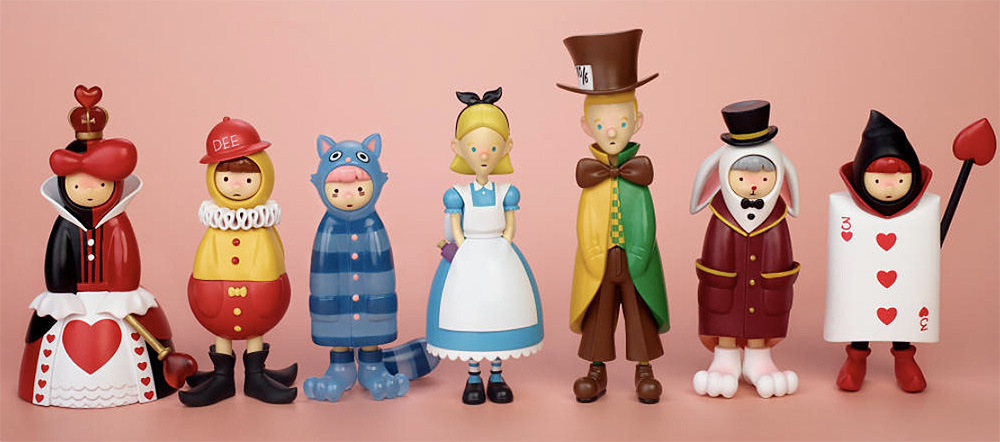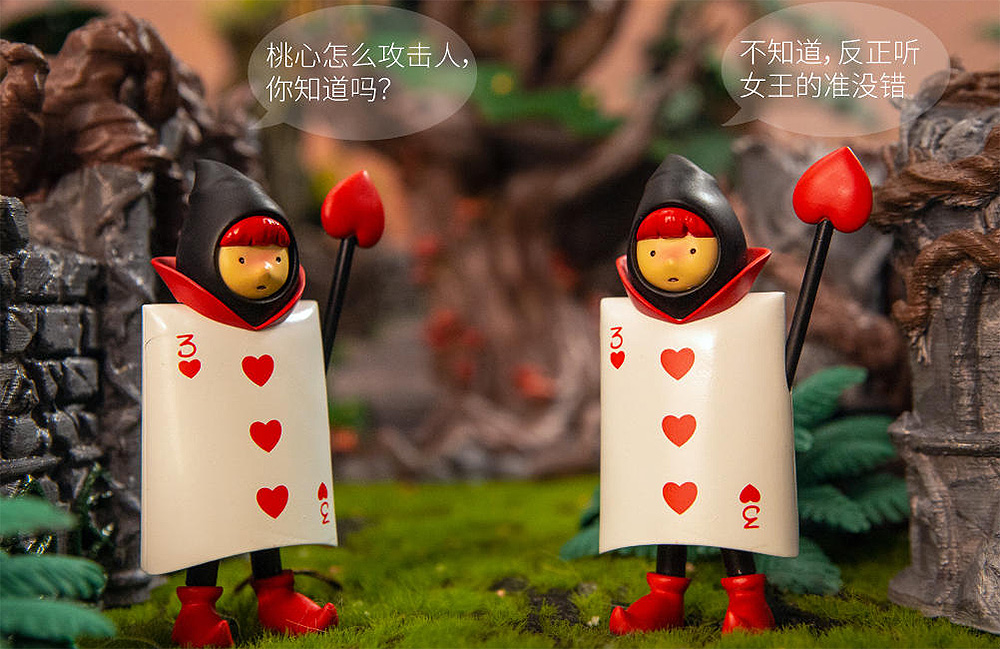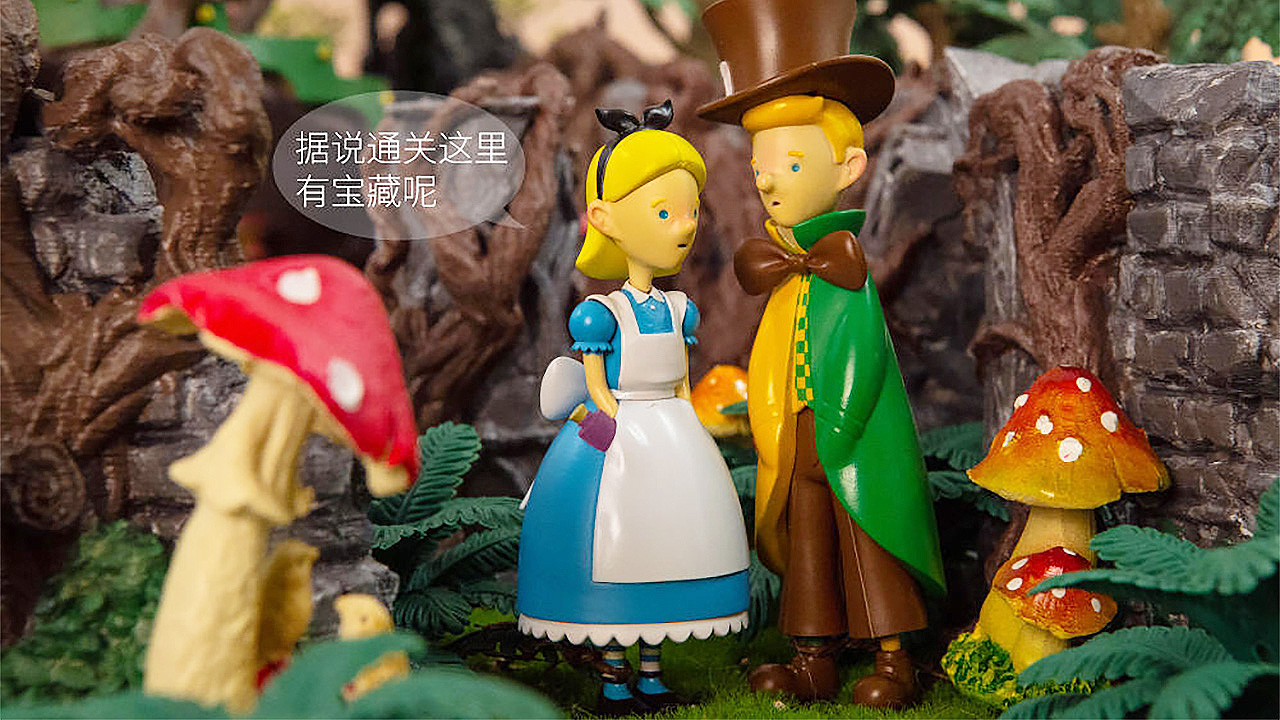Having endured in popularity for more than 150 years, Lewis Carroll Alice’s Adventures in Wonderland is no mere children’s bedtime story. Now a powerhouse cultural IP, the literary classic has inspired generations’ worth of fashion, music, and movies, while lately forming the focus of the Victoria & Albert Museum’s 2021 exhibition, Alice: Curiouser and Curiouser.
The British Museum, which houses a number of John Tenniel’s original illustrations for the book, hasn’t missed out on tapping the IP’s currency. It’s released any number of Alice-themed merchandise, including stationery, mugs, and soaps, and last month, announced the launch of the Alice in Wonderland Blind Box Series in partnership with Bluepiper Studio and for the Chinese market.
What happened

The collection of seven collectibles has been created by Jibi, a popular toy designer best known for his Sosim World range of blind boxes. Image: Alice in Wonderland x Sosim World WeChat Mini-Program
The project has roped in South Korean designer Jibi — best known for his Sosim World series of blind-boxed art toys — to reimagine and design seven key Wonderland characters. These figurines are packaged in mystery boxes for audiences to draw from.
Unlike most museum IP outings, the Alice in Wonderland Blind Box Series was announced on the crowdfunding platform Modian, inviting users to raise funds for the project and offering them insight into every phase of its production. The campaign concluded on September 30 — having hit a completion rate of 285.61 percent, far exceeding its crowdfunding goal — with the first round of toys reaching customers in the weeks following.
What are blind boxes?
One of the biggest trends driving the Chinese toy industry, blind boxes are opaque packaging that hide collectible toys within. So great is the demand among young consumers that blind box sales soared by 600 percent between 2018 and 2019, while Chinese institutions from Beijing’s Palace Museum to Sanxingdui Museum have signed on to the trend, producing blind boxes containing toys based on cultural relics. In 2019, the British Museum itself launched a line of Egyptian-themed collectibles to coincide with its Ancient Egypt Pop-up Store in Shanghai.
What is Bluepiper Studio?

Bluepiper Studio’s crowdfunding campaign offered backers insight into the production process and rewards for their contributions. Image: Alice in Wonderland x Sosim World WeChat Mini-Program
A maker of art toys and board games, Bluepiper Studio is headquartered in Vancouver, Canada, with production facilities in Shenzhen. The company integrates design, production, marketing, and distribution across global markets, making it an attractive partner for cultural and creative organizations.
Previously, it teamed up with the British Museum to release limited edition blind boxes for its Hello Kitty x Egyptian Adventure Pop-Up Store, and the Guanfu Museum for the Guanfu Cat series of blind boxes, which surpassed its crowdfunding goal by 1374.41 percent.
Why it matters
The British Museum is a seasoned veteran when it comes to using cultural IP to reach Chinese cultural audiences. This project, notably, hits a number of sweet spots: it leverages a widely recognized IP, China’s blind box boom, the existing popularity of Jibi’s designs, and audience participation (and emotional connection) via a crowdfunding campaign.
Besides engaging customers throughout the products’ “creative journey,” per Huang Shengli, Founder and CEO of Modian, the Alice in Wonderland Blind Box Series ensures the British Museum a continued presence in the art toy space, while refreshing its IP to engage new and younger consumers. The institution’s collaboration with Bluepiper Studio, too, highlights the importance of key partners to realize and market projects in ways that appeal to local appetites.
Translated by Min Chen



